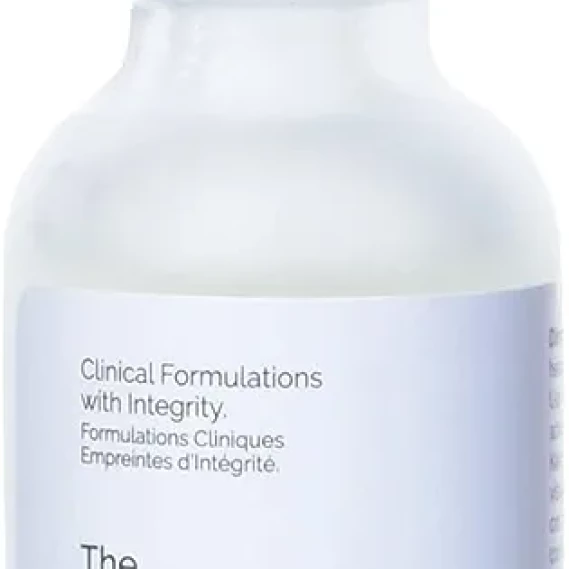Niacinamide (Vitamin B3) is indicated to reduce the appearance of skin blemishes and congestion. A high 10% concentration of this vitamin is supported in the formula by zinc salt of pyrrolidone carboxylic acid to balance visible aspects of sebum activity.
Contraindications: If topical Vitamin C (L-Ascorbic Acid and/or Ethylated L-Ascorbic Acid) is used as part of skincare, it should be applied at alternate times with this formula (ideally Vitamin C in the PM and this formula in the AM). Otherwise, Niacinamide can affect integrity of the Vitamin C.
Niacinamide 10% + Zinc 1% formula is a water-based serum that boosts skin brightness, improves skin smoothness and reinforces the skin barrier over time. It contains a high 10% concentration of Niacinamide (vitamin b3) and zinc PCA.
Note: Niacinamide and Zinc PCA is not a treatment for acne. For persistent acne-related conditions, we recommend speaking to your health care provider regarding treatment options. This formulation can be used alongside acne treatments if desired for added visible skin benefits.
Clinical Results
Hydrating lightweight serum that improves the look of skin radiance and luminosity.
Hydrates skin by reinforcing the skin barrier in as little as 7 days.
Achieve smoother skin after 8 weeks.*
*In a clinical study of 35 subjects applying product 2x/day for 8 weeks
Aqua (Water), Niacinamide, Pentylene Glycol, Zinc PCA, Dimethyl Isosorbide, Tamarindus Indica Seed Gum, Xanthan gum, Isoceteth-20, Ethoxydiglycol, Phenoxyethanol, Chlorphenesin.
Description
High-strength vitamin and mineral blemish formula that visibly regulates sebum and minimizes pores. This products have NO safety seal.
How to combine Niacinamide serum &
Salicilic acid serum treatment
Niacinamide and salicylic acid are two skincare ingredients that can help improve the appearance and health of your skin, especially if you have oily or acne-prone skin. However, you may wonder how to combine them in your routine without causing irritation or compromising their effectiveness. Here are some tips on how to use niacinamide and salicylic acid together:
First, you need to choose the right products for your skin type and concerns. Niacinamide is usually found in serums, creams, or moisturizers, while salicylic acid is often in cleansers, toners, or spot treatments. You can also find products that contain both ingredients, such as Naturium BHA Liquid Exfoliant 2% or Procoal Salicylic Acid Serum 2% + Zinc 1%.
Second, you need to apply them in the correct order and frequency. Generally, it is recommended to apply niacinamide before salicylic acid, as niacinamide can help hydrate and strengthen your skin barrier, which can prevent salicylic acid from drying out or irritating your skin1. However, some sources suggest that you can also apply salicylic acid first, followed by niacinamide, as long as you wait for a few minutes between each step2. The best way to find out what works for you is to patch test and monitor your skin’s reaction.
Third, you need to be careful not to over-exfoliate or over-treat your skin. Salicylic acid is a powerful exfoliant that can remove dead skin cells and unclog pores, but it can also cause dryness, peeling, redness, or sensitivity if used too often or in high concentrations. Niacinamide is generally well-tolerated by most skin types, but it can also cause some side effects, such as flushing, itching, or burning, if used in excess or with incompatible ingredients. Therefore, it is advisable to start with low concentrations and frequencies, and gradually increase them as your skin adjusts. You should also avoid using other exfoliating or drying ingredients, such as retinoids, benzoyl peroxide, or alcohol, when using niacinamide and salicylic acid together.
Fourth, you need to protect your skin from sun damage and environmental stressors. Both niacinamide and salicylic acid can make your skin more sensitive to the sun, which can increase the risk of sunburn, hyperpigmentation, or premature aging. Therefore, you should always apply a broad-spectrum sunscreen with at least SPF 30 every morning, and reapply it every two hours or as needed. You should also use antioxidants, such as vitamin C or E, to help neutralize free radicals and prevent oxidative damage to your skin.



Add your review